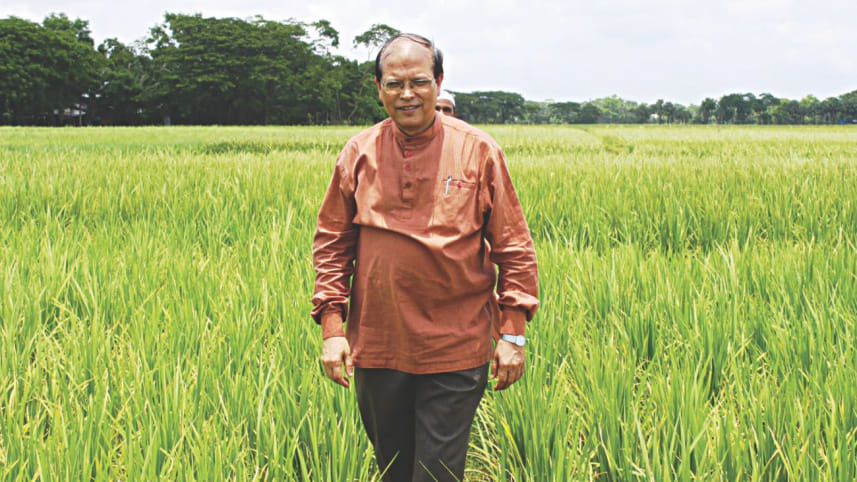Atiur Rahman: The architect of financial inclusion

As recently as April 2009, there were no words like 'financial inclusion' in the Bangladesh Bank's lexicon.
But the term found its pride of place once Atiur Rahman took charge of the central bank as its governor in May 2009.
At the onset, Rahman made a broad commitment to inclusive, equitable and environmentally sustainable socioeconomic growth, one that left no one behind.
Accordingly, the BB became more proactive in its engagement with commercial banks. There were policy thrusts on digitisation, mitigation and adaptation response to climate change threats, and opening of more bank branches in rural areas.
Later, the BB opened separate departments for agriculture, small- and medium-sized enterprises, financial inclusion, corporate social responsibility -- all with a view to bringing in the majority of the unbanked population under the umbrella of formal financial services.
“Within three weeks of my charge with the BB, I had a meeting with the chief executives of commercial banks in Jamuna Resort to help us formulate a policy focusing on financial inclusion,” Rahman told The Daily Star in an interview.
But it was not so easy to get the private and foreign banks on the board, recalled the former governor, who had to step down in March last year over the cyberheist of $101 million from the central bank account with the New York Federal Reserve Bank by hackers a month earlier.
“The central bank nudged the domestic and foreign banks to serve the agriculture and agro-processing industries, women, youth, SMEs. Also, we established closer links with the micro-finance institutions.”
Such policy and regulatory innovations helped address the financing needs of the real sector and entrepreneurs, said Rahman, who now teaches development economics at Dhaka University.
At present, nearly 45 percent of the adult population in Bangladesh are under the formal financial services umbrella, up from just 20 percent in 2013.
Despite the global financial crisis in the US and the EU, Bangladesh posted over 6 percent gross domestic product growth for over a decade. In the last two fiscal years, growth was more than 7 percent.
“Our financial inclusion drive has fostered financial stability in the country even at a time when the world was struggling with the impact of financial crisis.”
He said the BB's focus was to create domestic demand by including more people in the formal financial services umbrella, which later helped the country maintain economic stability.
The former governor went on to acknowledge the role of technology, especially mobile phones, in the the rapid spread of delivery channels across the country.
Now 50 lakh transactions that are worth more than Tk 1,000 crore are made through the mobile financial services platform every day, making the rural economy more vibrant with each passing day.
In addition to individuals, about 40,000 enterprises are using mobile phones to make business transactions.
“Now, agent banking is helping a lot in connecting the country financially.”
Another example of financial inclusion, other than the MFS platform, is the student banking programme, under which children between the ages of 6 and 18 are encouraged to open bank accounts with the object of saving for their future endeavours.
More than 13 lakh accounts have so far been opened under the programme, the collective balance of which is nearly Tk 1,200 crore.
“Students' money is stable deposit for banks as they will not withdraw their money suddenly.”
The former governor's other passion is the agriculture sector, which often gets left behind as the economy progresses.
“Banks were reluctant to lend to the sector. But we have motivated top bankers by saying that financing to the farm sector will strengthen the food supply and provide food security, which, in turn, will help us manage inflation.”
Rahman said the banks were also motivated to lend to women entrepreneurs and the BB introduced a refinance scheme to support the banks to this end.
Asked where Bangladesh stands in financial inclusion in comparison with other South Asian nations, he said: “We are way ahead in this regard.”



 For all latest news, follow The Daily Star's Google News channel.
For all latest news, follow The Daily Star's Google News channel.
Comments